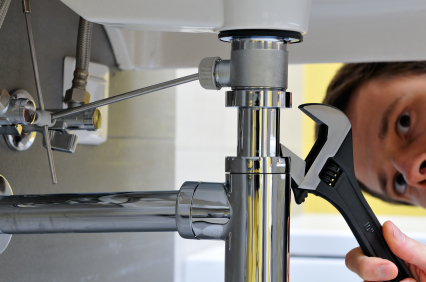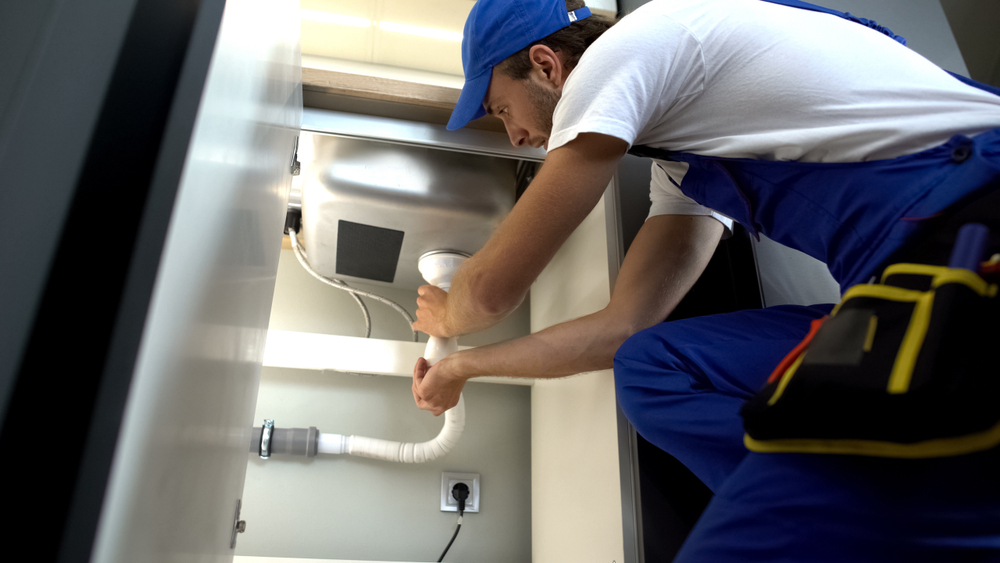Temporary Solutions for Plumbing Issues: Crucial Steps to Take Until A Plumber Arrives
Schedule Your Job NowThe publisher is making a number of good pointers on the subject of Expert Tips for Emergency Plumbing Repairs in general in the article directly below.

Plumbing emergencies can strike any time, triggering stress and potential damage to your home. Whether it's a burst pipeline, a clogged drainpipe, or a leaky faucet, recognizing exactly how to handle the situation until a professional plumbing professional shows up can save you from further difficulties. This short article provides vital emergency situation pipes tips to aid you reduce damages and regain control throughout a pipes crisis.
Switch off the Supply Of Water
The very first step in any pipes emergency is to turn off the water supply. For local issues, such as a leaking faucet or commode, turn off the shutoff near the fixture. When it comes to a major leak or ruptured pipe, find your home's main water shut-off valve and turn it off immediately. Recognizing the location of these shutoffs in advance can conserve useful time during an emergency situation.
Address Little Leakages with Short-lived Solutions
Small leakages can quickly end up being substantial problems if left untreated. Make use of these short-term solutions until expert assistance gets here:
While these solutions aren't long-term, they can assist decrease water loss and damage.
Unclog Drains Pipes Safely
A stopped up drainpipe can be an aggravating and untidy concern. Here's exactly how to tackle it:
If these approaches do not work, avoid utilizing too much pressure, as it may intensify the blockage.
Handle Overflowing Toilets
An overruning toilet can cause instant turmoil. Right here's what you must do:
Shut down Your Water Heater
In certain emergencies, such as a burst pipeline, it's wise to shut off your water heater. This prevents overheating or damages to the device when water quits moving. Switch off the power supply to the hot water heater (electrical or gas) and allow it cool off to prevent prospective risks.
Briefly Stop a Burst Pipe
A ruptured pipeline can bring about substantial water damages in minutes. To reduce the concern:
Call a specialist plumbing quickly to attend to the problem completely.
Manage Frozen Pipeline Very Carefully
In colder climates, frozen pipelines are a common emergency situation. If you think an icy pipeline:
Avoid More Damages
Taking quick activity to reduce damages can save you money and time over time. Below's exactly how:
. Have an Emergency Situation Pipes Package
Prepare a basic plumbing emergency set to take care of small concerns effectively. Your kit must consist of:
Having these devices accessible can make a significant difference in your capability to take care of emergencies.
Know When to Call a Professional.
While quick fixes can assist momentarily, particular plumbing issues need prompt specialist attention. Call a plumbing technician if:.
Quickly getting in touch with an expert makes sure the concern is settled correctly and avoids additional complications.
Conclusion.
Pipes emergency situations can be frustrating, however with the best knowledge and tools, you can take care of the scenario effectively until help arrives. By turning off the water supply, dealing with small leakages, and using momentary repairs, you can reduce damage and keep your home safe. Remember, these tips are temporary solutions; constantly get in touch with an accredited plumbing technician to manage the source of the problem. Preparation and fast reasoning are your best allies in any kind of pipes emergency situation.
8 Helpful Tips for Managing Plumbing Emergencies at Home
If your plumbing system hasn’t failed once, wait for it because almost everyone has a story to tell. Sometimes, it could be simple emergencies such as a leaking pipe, a blocked cistern, or even a big burst pipe. In situations like this, you need to have some handy tips to save you some money and from possible damages.
Take care of minor issues early.
Sometimes, you could have avoided an emergency by taking proactive measures while it was still early. Some major plumbing emergencies can be a result of an ignored minor issue. We recommend that you have items like plumbing tapes and other related items. A plumbing tape can allow you to manage minor leaks before the plumber arrives.
Cut off the water supply.
This tip is essential in almost any type of leakage problem. For problems like minor leakages in the toilet or kitchen, turn off the supply that takes water to the affected pipes. If the leakage is a major pipe, you must shut off the supply valve to the entire building. This will help you avoid flooding your home and neighbors if you share a flat.
Know your plumbing system
Folks typically move into a new apartment without understanding the water supply around the building. This can prove disastrous if a water emergency arises and the plumber is far away. The previous tip will prove useless if you don’t practice this one. More importantly, know where your water shut-off valve is located – you’ll need that knowledge to prevent potential home floods.
Have some common handy tools
There are lots of plumbing emergencies that you can handle without hiring a plumber. That’s why you must keep some tools available always. Some tools that you can use to fix simple plumbing emergencies easily include plumbing tapes, screwdrivers, thread seal tapes, plungers, pliers, tape measures, and rubber gloves.
Insulate your pipes from cold
You’ll save yourself from many plumbing expenses if you protect your water pipes from the cold. This is because of the harmful effects that cold weather can have on your pipes. During winter, your pipes can burst from being overly expected to freezing temperatures. So, make sure insulators are there to keep the pipes working correctly.
Avoid practices that will clog your toilet.
Many people indulge in practices that can damage the plumbing system of the entire building. One of these is when they use their toilet to dispose-off garbage. They flush all kinds of things, such as paper towels, bandages, hairs, female sanitary products, etc., down the toilet. This will block your toilet in the long run, incurring unnecessary expenditures. Dump such waste in the trash instead.
Check your dials regularly.
Sometimes, there could be leakages in your home without noticing them in time. So, constantly monitor your water meter dial. If the dial is reading when there is nobody using water, this is an indicator that there is leaking. Check for leaks immediately. Call a plumber as soon as possible if you can’t find any.
https://www.constructionplacements.com/8-helpful-tips-for-managing-plumbing-emergencies-at-home/

I was made aware of that editorial about What to Do During a Plumbing Emergency from a friend on another blog. Sharing is nice. You just don't know, you may be helping someone out. I am grateful for being here. Please pay a visit to our blog back soon.
Call Today